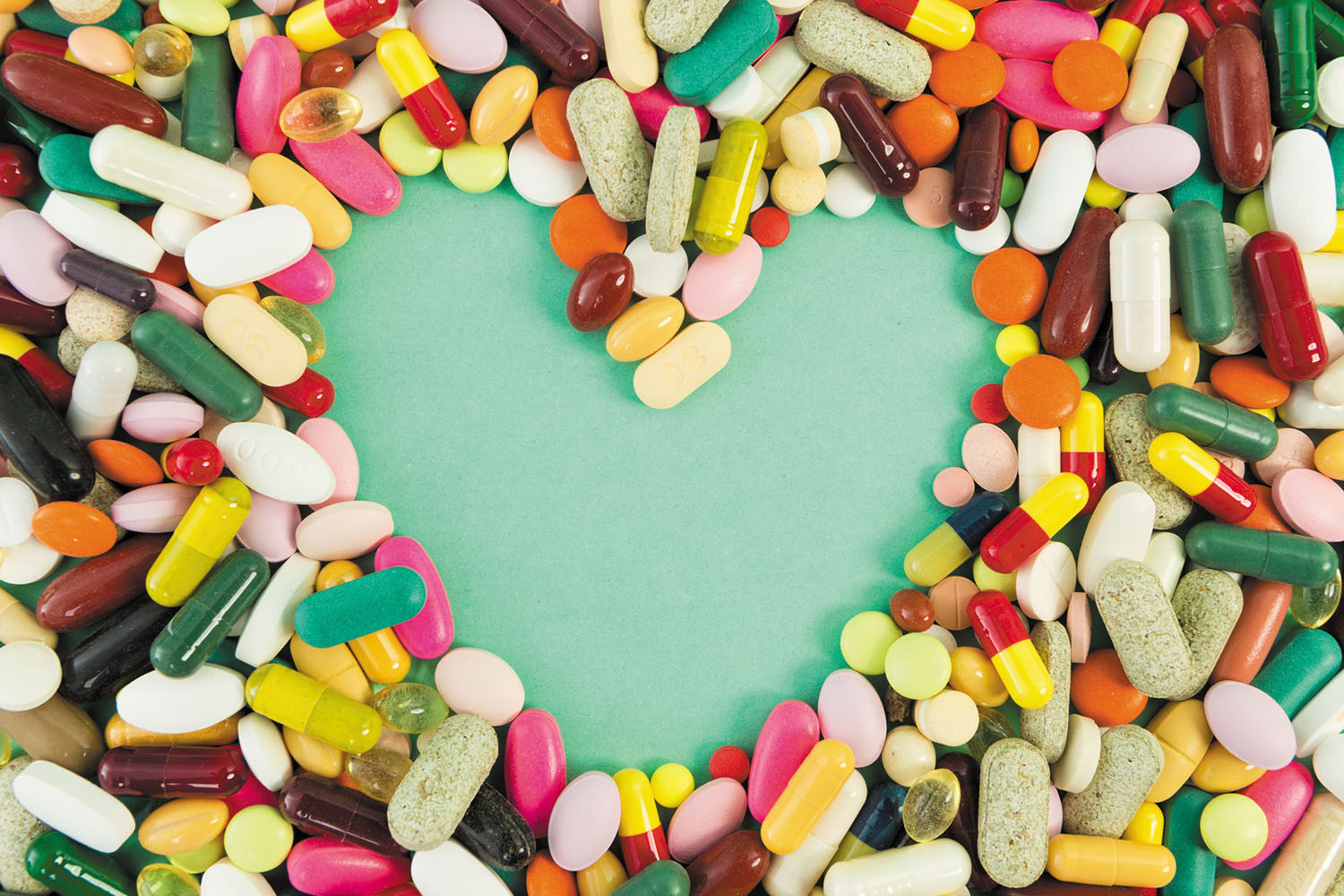
5 timeless habits for better health

What are the symptoms of prostate cancer?

Is your breakfast cereal healthy?

When pain signals an emergency: Symptoms you should never ignore

Does exercise give you energy?

Acupuncture for pain relief: How it works and what to expect

How to avoid jet lag: Tips for staying alert when you travel

Biofeedback therapy: How it works and how it can help relieve pain

Best vitamins and minerals for energy

Should you take probiotics with antibiotics?
Heart Health Archive
Articles
Detecting afib with a smartphone camera?
Research we're watching
Picture this: One day, you may be able to use your smartphone camera to detect atrial fibrillation. Also known as afib, the irregular heart rhythm raises the risk of stroke. New research suggests that the technique, which relies on a special app, is almost as accurate as an FDA-approved mobile electrocardiogram.
Here's how it works: You place your index finger on the smartphone camera, which uses the camera's light to detect changes in your pulse. The app algorithm then uses that information to determine whether your pulse is steady and regular (normal rhythm) or fast and irregular (afib).
“Prehabilitation” may improve heart surgery recovery
Image: Thinkstock
Research we're watching
After heart surgery, patients often enroll in cardiac rehabilitation, a multiweek program of structured exercise paired with lifestyle and nutrition education. A new review suggests that a similar program done prior to surgery, known as "prehabilitation," may help older, frail people to recover better from heart surgery.
The prehab approach goes by the acronym NEW, which stands for nutritional status, exercise capacity, and worry reduction. Targeting those three factors seems to improve people's physical and psychological readiness for undergoing surgery, according to the article, published in the July Canadian Journal of Cardiology.
Spectator sports: How a high-stakes game may affect your heart
Research we're watching
Image: © FatCamera/Getty Images
Stressful events — even positive ones, such as watching an exciting sporting match — can affect your heart. During World Cup soccer and the National Football League's Super Bowl, rates of heart attacks and heart rhythm problems (arrhythmias) increase, both among sports fans and within the local population. A study published online August 20 by the American Journal of Cardiology takes a closer look at this risk.
Researchers examined data from 133 people with implanted cardiac devices in St. Louis, Mo., during two 10-day periods. The first was in early September of 2011 (the control period). The second was six weeks later during the World Series, when the St. Louis Cardinals played a series of dramatic games against the Texas Rangers.
The age of statins
Healthy older adults ages 75 and older might not benefit from the drugs to protect against cardiovascular disease.
Image: © rogerashford/Getty Images
Cardiovascular disease is the leading cause of death for people ages 75 and over. The cholesterol-lowering statin drugs can help protect against heart attack or stroke, both for people who have already had one and those who are at high risk for one of these events.
But what if you are in this older age bracket and have no history of cardiovascular problems? Do you really need one of these cholesterol-lowering drugs to protect yourself from future heart attacks and strokes?
Weight may determine how much aspirin is needed to prevent heart attacks
In the journals
Image: © sd619/Getty Images
Low-dose aspirin therapy has been shown to help prevent heart attacks, but a study in the Aug. 4, 2018 issue of The Lancet suggests men who weigh more than 154 pounds may need higher doses. Researchers analyzed 10 trials that evaluated daily aspirin therapy for cardiovascular disease prevention in 120,000 men and women. The study participants had no history of heart or vascular disease. The researchers found that low-dose daily aspirin — 75 to 100 mg — was associated with reduced risk for heart attack and stroke among both men and women who weighed less than 154 pounds.
However, there was no significant effect for heavier patients. (About 80% of the men in the study were among this group.) The reason? The researchers speculated that people with more weight also have higher amounts of esterase, an enzyme that reduces how much aspirin is available in the body.
Taking a multivitamin probably won’t help your heart
Vitamins don't seem to reduce cardiovascular risks, according to a new report.
Image: © Thunderstock/Getty Images
There may be reasons to take a multivitamin, but improving your cardiovascular health is not one of them, says a report in the July 10 issue of Circulation: Cardiovascular Quality and Outcomes. The authors found that for the average person, taking a multivitamin supplement didn't help prevent cardiovascular problems, such as heart attacks and strokes.
The findings were based on a review of general population studies conducted from 1970 to 2016, involving more than two million people. Researchers looked for associations between multivitamin supplementation and cardiovascular outcomes. But they weren't able to find any links.
High “bad” cholesterol may raise heart risks all by itself
Research we're watching
Image: © donskarpo/Getty Images
Having high levels of "bad" LDL cholesterol may put you at higher risk of dying from cardiovascular disease — even you are otherwise considered at low risk. A study published online August 16 by the journal Circulation came to this conclusion by looking at data from more than 36,000 patients who had no history of cardiovascular disease or diabetes and were classified as low risk for developing cardiovascular disease over the next 10 years.
Researchers tracked participants for approximately 27 years and found that people who had LDL levels of 160 or higher were 70% to 90% more likely than those with LDL cholesterol levels below 100 to die from cardiovascular disease during the course of the study.
Your heart’s desire: A daily practice to relieve stress
Every day, carve out a little time to release your worries and relax your mind. It may counteract the heart-damaging effects of stress.
Image: © Photodjo/Getty Images
Stress is an inevitable part of life. People often fret over day-to-day hassles such as traffic jams and unpaid bills, not to mention the relentless news about natural disasters and political crises. Many are also coping with the added anguish of divorce, illness, or death within their families.
All of these so-called psychosocial stresses first take hold in your mind. But the effects spread throughout your brain and body. Sometimes, you can even feel it: your heart pounds, you breathe faster, and your muscles tense. However, chronic stress also has more insidious physical effects that can harm your heart (see "Stress and your cardiovascular system").
An unusual type of heart attack
Ask the doctor
Image: © patrickheagney/Getty Images
Q. Is it possible to have a heart attack even if you don't have any blockages in your heart's arteries?
A. Yes, you can. Doctors refer to heart attacks without blocked arteries as MINOCA, which stands for myocardial infarction (that is, heart attack) with non-obstructive coronary arteries. When it occurs, people may experience typical heart attack symptoms, such as chest pressure or pain in the center of the chest (or the arms, jaw, neck, or stomach) and trouble breathing. They also have elevated blood levels of a protein called troponin, a marker of heart damage that is used to diagnose a heart attack. But the next test — a special x-ray of the heart's arteries called an angiogram — shows no evidence of a significant buildup of fatty plaque blocking any of the heart's arteries.
How to spot questionable nutrition advice
The Internet is rife with dubious dietary advice for heart health. Here's how to separate the wheat from the chaff.
Image: © mixetto/Getty Images
Surfing the Web nearly always involves running into a few ads, blogs, and articles about diet and health. Perhaps you also have relatives or friends who send you links about what you should (or shouldn't) be eating to lose weight, lower your blood pressure, or dodge heart disease.
You might be skeptical enough to avoid clicking on suspicious links, like those once-popular ads promising "one weird trick to banish belly fat." Yet sometimes the advice appears to be from a legitimate source — for instance, a purported world-class heart surgeon who's written books about diet and nutrition. But what if the recommendations run counter to what you've mostly heard about a heart-healthy diet? It's no wonder many people feel confused and frustrated about nutrition.

5 timeless habits for better health

What are the symptoms of prostate cancer?

Is your breakfast cereal healthy?

When pain signals an emergency: Symptoms you should never ignore

Does exercise give you energy?

Acupuncture for pain relief: How it works and what to expect

How to avoid jet lag: Tips for staying alert when you travel

Biofeedback therapy: How it works and how it can help relieve pain

Best vitamins and minerals for energy

Should you take probiotics with antibiotics?
Free Healthbeat Signup
Get the latest in health news delivered to your inbox!
Sign Up











